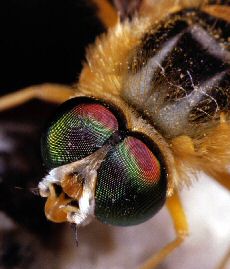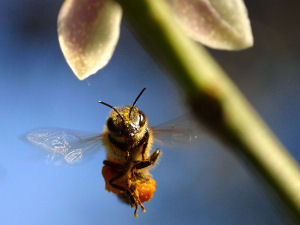
Bees prefer nectar containing nicotine and caffeine over nectar without these substances and researchers from the University of Haifa think this could be an evolutionary development intended, as in humans, to make the bee addicted.
Researcher Ido Izhaki explained that flower nectar is primarily comprised of sugars, which provide energy for the potential pollinators. But the floral nectar of some plant species also includes small quantities of substances known to be toxic, such as caffeine and nicotine. Izhaki’s study examined whether these substances are intended to “entice” the bees or whether they are byproducts that are not necessarily linked to any such objective.
Nicotine is found naturally in floral nectar at a concentration of up to 2.5 milligrams per liter, primarily in various types of tobacco plant. Caffeine is found at concentration levels of 11 to 18 milligrams per liter, mostly in citrus flowers. In the nectar of grapefruit flowers, however, caffeine is present in much higher concentrations, reaching 94 milligrams per liter.
The results showed that the bees clearly preferred nectar containing nicotine and caffeine over the clean nectar. The preferred nicotine concentration was 1 milligram per liter, similar to that found in nature. Given a choice of higher levels of nicotine versus “clean” nectar, the bees preferred the latter.
Izhaki says it is difficult to determine whether the addictive substances in the nectar became present in an evolutionary process in order to make pollination more efficient. It can be assumed, however, based on the results of the study, that the plants that survived natural selection are those that developed appealing levels of these addictive substances, enabling them to attract and not repel bees. The researchers are planning further experiments to determine whether the bees do indeed become addicted to nicotine and caffeine.
Related:
Insects Keep Coming Back For Nicotine-Laden Pollen
Two Bees? Aw, Not Two Bees
Nicotine Improves Memory And Helps Brain Repair Itself
Smoking Helps Develop Brainpower
















Comments are closed.